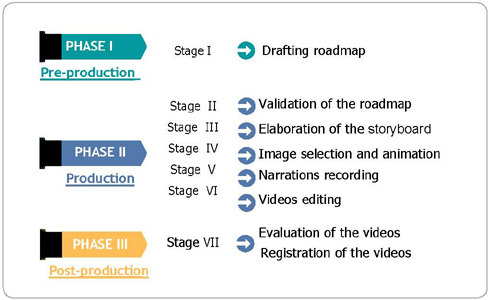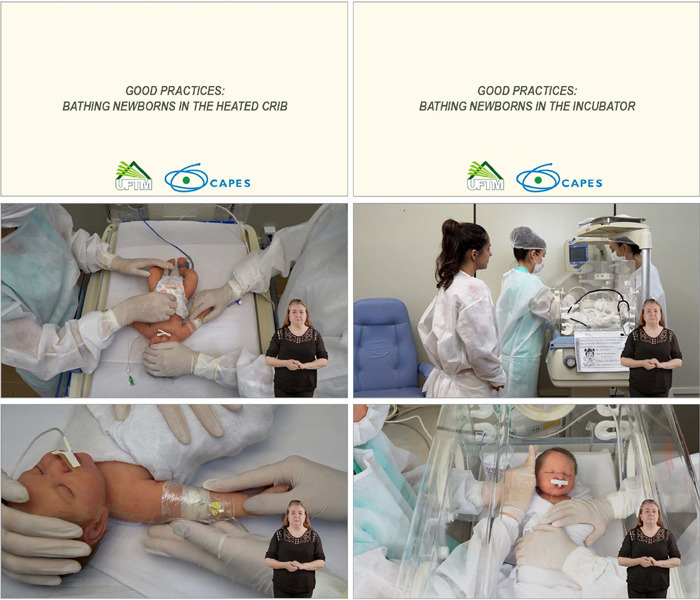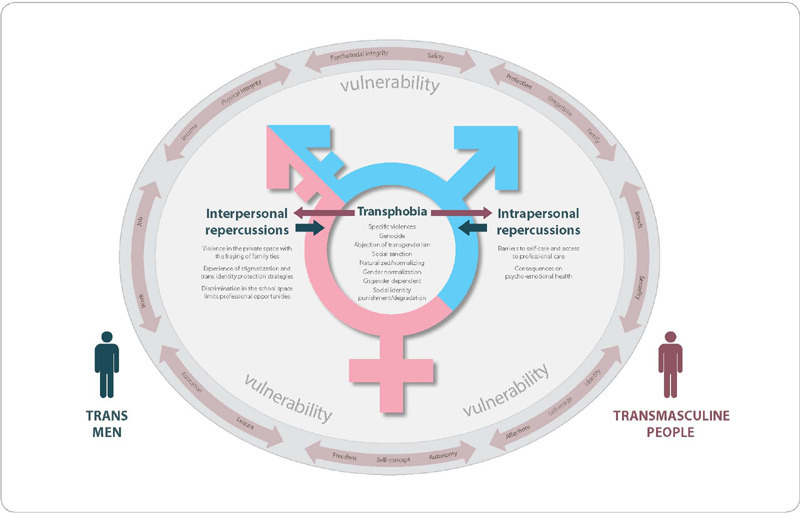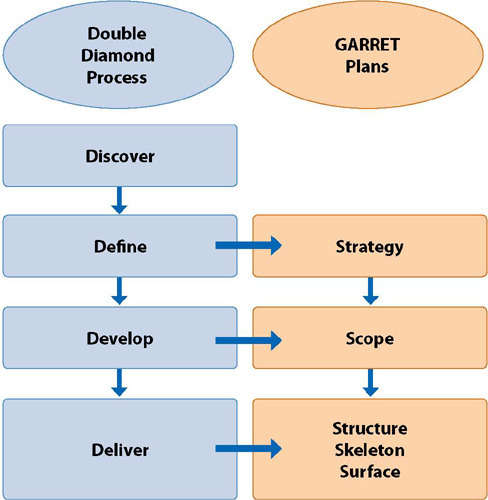-
11-13-2023
Digital technology for the prevention of healthcare-related infections in critical care
Revista Brasileira de Enfermagem. 2023;76:e20220528
Abstract
Digital technology for the prevention of healthcare-related infections in critical care
Revista Brasileira de Enfermagem. 2023;76:e20220528
DOI 10.1590/0034-7167-2022-0528
Views0See moreABSTRACT
Objective:
To develop digital technology for patient and family integration into the Intensive Care Unit care team, aiming to subsidize decision-making for the prevention of infections related to healthcare.
Method:
Methodological research of technological production in three phases: pre-production, production, and post-production in a teaching hospital in southern Brazil. Sixteen intensive care unit nurses participated.
Results:
The research produced six videos: general guidelines on the Intensive Care Unit, Preventing infections: hand hygiene; Pneumonia associated with mechanical ventilation; Catheter-associated primary bloodstream infection; Catheter-related urinary tract infection.
Final considerations:
The proposed technology was developed and aims to assist nurses in bringing patients and families closer to the routines of the intensive care environment to provide safety in the contact of the patient of intensive care units with family members and in the active participation for the prevention of infections related to healthcare.

-
ORIGINAL ARTICLE11-13-2023
Development of educational videos about bathing in bed newborns admitted to a neonatal unit
Revista Brasileira de Enfermagem. 2023;76:e20220778
Abstract
ORIGINAL ARTICLEDevelopment of educational videos about bathing in bed newborns admitted to a neonatal unit
Revista Brasileira de Enfermagem. 2023;76:e20220778
DOI 10.1590/0034-7167-2022-0778
Views0See moreABSTRACT
Objective:
to develop and analyze evidence of content validity of educational videos about bathing newborns in bed in a neonatal unit.
Method:
applied and methodological research, carried out from December/2020 to February/2022, in three phases: pre-production, production, post-production. Validity was carried out by nurses specializing in social communication and nursing professionals, including the Brazilian Sign Language and assessment by nursing students. The Content Validity Index and Cronbach’s alpha above 0.8 were considered for analysis.
Results:
the videos were entitled “Best practices: bathing newborns in the heated crib” and “Best practices: bathing newborns in the incubator”, lasting seven minutes each, divided into six scenes that demonstrated the approach to parents, environment and material organization, preparing newborns, bathing and after-bath care.
Conclusion:
the videos will support permanent education processes, academic training and professional training in nursing.

-
ORIGINAL ARTICLE11-13-2023
Access of people with pulmonary tuberculosis to government programs: Primary Care professionals’ perceptions
Revista Brasileira de Enfermagem. 2023;76:e20220716
Abstract
ORIGINAL ARTICLEAccess of people with pulmonary tuberculosis to government programs: Primary Care professionals’ perceptions
Revista Brasileira de Enfermagem. 2023;76:e20220716
DOI 10.1590/0034-7167-2022-0716
Views0See moreABSTRACT
Objective:
to analyze Primary Health Care professionals’ perceptions about the access of people with pulmonary tuberculosis to government social support and income transfer programs.
Methods:
multicenter/qualitative study, carried out in Family Health Units in four Brazilian capitals: Belém/Pará, Campo Grande/Mato Grosso do Sul, Recife/Pernambuco and Rio de Janeiro/Rio de Janeiro. Fifty-eight professionals participated (social workers, dentists, nurses, pharmacists, physicians and nursing technicians), who provided assistance to people with pulmonary tuberculosis. Individual interviews were conducted, and the content analysis technique was used.
Results:
among the participants, 45/77.6% were women and 33/56.9% were between 25 and 40 years old. Two thematic categories were organized, demonstrating the perceptions about the possibilities of access to government programs by people with pulmonary tuberculosis in vulnerable situations and the obstacles inherent to this context.
Final considerations:
it is necessary to move forward in improving patient access to social programs.
-
ORIGINAL ARTICLE11-13-2023
Vulnerability to physical inactivity: evidence of content validity and response processes
Revista Brasileira de Enfermagem. 2023;76:e20220563
Abstract
ORIGINAL ARTICLEVulnerability to physical inactivity: evidence of content validity and response processes
Revista Brasileira de Enfermagem. 2023;76:e20220563
DOI 10.1590/0034-7167-2022-0563
Views0See moreABSTRACT
Objective:
To analyze content validity evidence and response processes of a bank of items for measuring vulnerability to physical inactivity in adults.
Method:
Methodological study, with 13 specialists and 46 representatives of the target population. The Content Validity Index (CVI) and binomial test were calculated; data obtained through validity based on response processes were collected through interviews.
Results:
Of the 105 constructed items, 16 were excluded (CVI<0.78); 89 items showed agreement <80% in the psychometric criteria, being modified. Of the 101 items that remained (CVI>0.78), 34 were changed and 4 were deleted after evaluating the evidence of response processes. In the end, 97 items remained, with a global CVI of 0.92, organized into two dimensions: Subject (CVI=0.91) and Social (CVI=0.94).
Conclusion:
The items presented adequate parameters and evidence of validity; and can subsidize the construction of instruments that consider the subject’s and social vulnerability in understanding physical inactivity.
-
ORIGINAL ARTICLE11-13-2023
Transphobia as a social disease: discourses of vulnerabilities in trans men and transmasculine people
Revista Brasileira de Enfermagem. 2023;76:e20220183
Abstract
ORIGINAL ARTICLETransphobia as a social disease: discourses of vulnerabilities in trans men and transmasculine people
Revista Brasileira de Enfermagem. 2023;76:e20220183
DOI 10.1590/0034-7167-2022-0183
Views0See moreABSTRACT
Objective:
to analyze the repercussions of transphobia on trans men’s and transmasculine people’s health.
Method:
a qualitative study carried out with 38 participants, 35 trans men and three trans men, who attended specialized transgender health services in Bahia, Brazil. In-depth interviews were carried out between June 2019 and February 2020. The Discourse of Collective Subject technique was used and interpretation based on the theoretical concept of transphobia.
Results:
transphobia has intra and interpersonal repercussions on the life and health of trans men and transmasculine people who attend health services. There were experiences of violence in the private space, fraying of family ties; discrimination in the school space; limitation in professional/work opportunities; barriers to self-care and access to health services; elaboration of trans identity protection strategies; consequences of transphobia on psycho-emotional health.
Conclusion:
transphobia is a social disease that affects different life and health dimensions. It causes damage to the socialization of trans men and transmasculine people, in addition to health service spaces as well as in family environments, schools, universities and at work, which result in non-adherence to self-care, distancing from health services and psycho-emotional distress.

-
ORIGINAL ARTICLE11-10-2023
Validation of the Advanced Practice Nursing Competency Assessment Instrument in a hospital environment
Revista Brasileira de Enfermagem. 2023;76:e20220705
Abstract
ORIGINAL ARTICLEValidation of the Advanced Practice Nursing Competency Assessment Instrument in a hospital environment
Revista Brasileira de Enfermagem. 2023;76:e20220705
DOI 10.1590/0034-7167-2022-0705
Views0See moreABSTRACT
Objectives:
to evaluate the measurement properties of the Advanced Practice Nursing Competency Assessment Instrument – Brazilian version, in the hospital environment.
Methods:
a methodological study conducted in a hospital with 238 nurses. Three instruments collect the data: sample characterization form, Brazilian version of the Advanced Practice Nursing Competency Assessment Instrument, and the category “therapeutic interventions” of the nurse competence scale. Construct validity was verified by confirmatory factor analysis and Spearman’s correlation coefficient, and reliability by Cronbach’s Alpha and composite reliability.
Results:
in the factor analysis, the model converged to a satisfactory result. The study found acceptable evidence of reliability (Cronbach’s Alpha, 0.76-0.87; and composite reliability, 0.85-0.90).
Conclusions:
the instrument demonstrated evidence of construct validity and internal consistency and can be used in practice
-
11-10-2023
HeLP: Development of occupational protection mask against surgical smoke
Revista Brasileira de Enfermagem. 2023;76:e20220647
Abstract
HeLP: Development of occupational protection mask against surgical smoke
Revista Brasileira de Enfermagem. 2023;76:e20220647
DOI 10.1590/0034-7167-2022-0647
Views0See moreABSTRACT
Objectives:
to describe a technological innovation in the development of an individual, ergonomic, sustainable and effective occupational respiratory protection mask for workers exposed to surgical smoke.
Methods:
applied, exploratory, quantitative research, using design methods and tools: Sense Intent, Know Context, Know People, Frame Insights, Explore Concepts, Frame Solutions, Realize Offerings, in addition to the Product Development Process tools. It was developed from March 2019 to December 2021.
Results:
from the prototyping mold, it became possible to represent the abstract to the physical, where all the concepts created in the methodological steps were implemented and the necessary adjustments were made to create the model as a technological innovation, which will have the concept for product commercialization.
Conclusions:
a mask for protection against surgical smoke (HeLP) was developed, from the design step to the prototype development, being a technological innovation.

-
11-10-2023
Technology for the treatment promotion of adults living with HIV: Positive o Cuidado (Positive the Care)
Revista Brasileira de Enfermagem. 2023;76:e20220454
Abstract
Technology for the treatment promotion of adults living with HIV: Positive o Cuidado (Positive the Care)
Revista Brasileira de Enfermagem. 2023;76:e20220454
DOI 10.1590/0034-7167-2022-0454
Views0See moreABSTRACT
Objectives:
to develop a responsive website focused on treatment adherence for adult users living with HIV.
Methods:
technological study conducted between August and October 2020, in the light of Pierre Lévy’s theoretical-philosophical framework, using the Double Diamond Process methodology associated with the five stages of The Elements of User Experience framework.
Results:
it was developed the responsive website Positive Care (Positive o Cuidado), composed of an initial presentation screen and 13 other screens named: Family Health and You; Undetectable = Untransmissible; Antiretroviral Drugs; Routine Tests; Vaccination; Antiretroviral Delivery; Drug Interactions; Combined Prevention; Support Services; Healthy Life; Family and Reproductive Planning; Covid 19; and Questions, Curiosities, and Myths.
Final Considerations:
the responsive website was developed based on the software design and programming process and has requirements/functionalities with the potential to strengthen the collective intelligence about HIV and, consequently, to promote treatment adherence by its users.

-
01-01-2015
Quality of life and physical activity in intensive care professionals from middle São Francisco
Revista Brasileira de Enfermagem. 2015;68(1):26-31
Abstract
Quality of life and physical activity in intensive care professionals from middle São Francisco
Revista Brasileira de Enfermagem. 2015;68(1):26-31
DOI 10.1590/0034-7167.2015680104i
Views0See moreObjective:
the objective was to assess the level of physical activity (LPA) and the quality of life QL of the professionals who work in ICU.
Method:
this was a cross-sectional study carried out in Adult ICUs. LPA was assessed by the International Questionnarie of Physical Activity – short form (IQPA-SF) and the QL by the Medical Outcomes Study 36 (SF-36) questionnaire.
Results:
it was classified active 50.89% out of a total of 59 professionals. Nursing technicians were considered the most active with 60.6%. The QL of the professionals who were considered active were better when compared to inactives, with statistical differences to the category of physical aspects limitation, social aspects and mental health. The working hours were higher than recommend, the physicians were higher than the physical therapist, nurses and technicians nurses (p = 0.046).
Conclusion:
physically active professionals who work in ICU had higher quality of life probably why have lower hours of work and consequently more free time to engage in physical activity.

-
01-01-2015
Learning needs of Nursing students in technical vocational education
Revista Brasileira de Enfermagem. 2015;68(1):20-25
Abstract
Learning needs of Nursing students in technical vocational education
Revista Brasileira de Enfermagem. 2015;68(1):20-25
DOI 10.1590/0034-7167.2015680103i
Views0See moreObjective:
identify learning needs of students of Technical Vocational Education (TVE) in Nursing. Qualitative study conducted in a city of São Paulo state.
Method:
the subjects were students, teachers and coordinators of TVE and students of the bachelor degree who have had contact with TVE. Data collection was performed by questionnaire socioeconomic and cultural circles about the learning needs. For data analysis we used the content analysis.
Results:
it was found that students have difficulties contents not related to nursing as portuguese and mathematics, as well as introductory courses in the course of TVE which possibly may interfere negatively in learning specific content of nursing and the quality of health care.
Conclusion:
it is necessary to rethink the content taught and ways to teach from basic education, as well as the training of teachers who now works in the TVE.
-
01-01-2015
Serious game e-Baby: nursing students’ perception on learning about preterm newborn clinical assessment
Revista Brasileira de Enfermagem. 2015;68(1):13-19
Abstract
Serious game e-Baby: nursing students’ perception on learning about preterm newborn clinical assessment
Revista Brasileira de Enfermagem. 2015;68(1):13-19
DOI 10.1590/0034-7167.2015680102i
Views0See moreObjective:
to evaluate students opinion regarding e-Baby educational technology.
Methodology:
exploratory descriptive study in which participated a sample composed of 14 nursing Portuguese students that used e-Baby digital educational technology in an extracurricular course. To achieve the aim of the study, the data collection was realized through an opinion instrument in Likert scale including the possibility of commentaries by students. Is was also collected data of participants’ characterization.
Results:
students made very satisfactory evaluations regarding the game e-Baby, varying since usability acceptation through suggestions of expansion of the game to other nursing themes.
Conclusion:
serious game e-Baby can be considered a didactic innovation and motivator tool of learning. Besides, it demonstrates have adequate interface in design and educative function aspects, evocating intense interaction between user and computational tool.

-
01-01-2015
Challenges beyond the scientific knowledge production
Revista Brasileira de Enfermagem. 2015;68(1):7-8
Abstract
Challenges beyond the scientific knowledge production
Revista Brasileira de Enfermagem. 2015;68(1):7-8
DOI 10.1590/0034-7167.2015680101p
Views0For several decades, innumerous appeals and reflections on how to build the nursing science and achieve visibility in the scientific world led researchers to make efforts to produce knowledge that contributed to the well-being of people, improving their quality of life, relieving their suffering and transforming the reality in which we live. In addition to […]See more
-
ORIGINAL ARTICLE10-09-2023
Intestinal parasitic infections: telephone health literacy with men in areas of poverty in the syndemic
Revista Brasileira de Enfermagem. 2023;76(4):e20220300
Abstract
ORIGINAL ARTICLEIntestinal parasitic infections: telephone health literacy with men in areas of poverty in the syndemic
Revista Brasileira de Enfermagem. 2023;76(4):e20220300
DOI 10.1590/0034-7167-2022-0300
Views0See moreABSTRACT
Objectives:
to assess Popular Health Education practices on intestinal parasites, carried out by telephone contact with men living in urban communities in Rio de Janeiro, Brazil, during the COVID-19 syndemic.
Method:
a quasi-experimental, quantitative and descriptive study, carried out with men aged 20 to 59 years. Pre-test was applied, and participants were divided into two groups: control and experimental. Popular Education in Health practices were carried out with an experimental group, and post-test was applied for both.
Results:
health education practices were significant in the experimental group, with a reduction in incorrect answers. There was an increase in incorrect answers in the control group’s post-test.
Conclusions:
the Brazilian National Policy for Popular Education in Health contributed to qualify men’s health literacy on intestinal parasites. Practice by telephone contact proved to be a powerful strategy for nursing and public policies to access this group and promote health in Primary Health Care.

-
10-09-2023
Content validation of an instrument for medical record audits
Revista Brasileira de Enfermagem. 2023;76(4):e20220109
Abstract
Content validation of an instrument for medical record audits
Revista Brasileira de Enfermagem. 2023;76(4):e20220109
DOI 10.1590/0034-7167-2022-0109
Views0See moreABSTRACT
Objective:
To build and validate the content of an instrument to conduct medical record audits; to conduct a pre-test.
Methods:
Methodological study conducted from May/2020 to May/2021 in three stages: 1) development of the instrument by bibliographic survey and benchmarking; 2) content validation using the Delphi technique; 3) application of the instrument and descriptive analysis in a sample of 200 medical records.
Results:
An instrument was constructed with 11 domains containing sub-items that characterize the quality of care. Two stages of the Delphi technique were necessary to reach a content validity index higher than 0.90. For each domain, a graduated scale with a numerical value from 1 to 4 points was attributed, reflecting the quality of its completion. The average time of application was 35 minutes per record.
Conclusions:
The tool proved to be viable to support clinical audits to identify the level of excellence and reveal opportunities for improvement in care processes.
-
ORIGINAL ARTICLE10-09-2023
Factors associated with older adults’ knowledge, attitude and practice on skin cancer prevention
Revista Brasileira de Enfermagem. 2023;76(3):e20220606
Abstract
ORIGINAL ARTICLEFactors associated with older adults’ knowledge, attitude and practice on skin cancer prevention
Revista Brasileira de Enfermagem. 2023;76(3):e20220606
DOI 10.1590/0034-7167-2022-0606
Views0See moreABSTRACT
Objectives:
to identify factors associated with older adults’ knowledge, attitude and practice regarding skin cancer prevention.
Methods:
this is a cross-sectional study, carried out with 120 older adults from a Basic Health Unit in Quixadá, Ceará, from September to November 2018.
Results:
individuals aged 60 to 69 years and working were statistically associated with adequate knowledge (p=0.038). Having light skin, eyes and hair was associated with adequate attitude (p=0.030). Having skin problems, such as bleeding wounds, was associated with adequate practice (p=0.016). With regard to inappropriate behavior for skin cancer prevention, there was a statistically significant association between working or having worked under direct exposure to the sun, inadequate knowledge (p=0.036), inadequate attitude (p=0.010) and having incomplete primary education and inadequate practice (p<0.001).
Conclusions:
sociodemographic and clinical factors influence older adults’ knowledge, attitude and practice regarding skin cancer prevention.
-
ORIGINAL ARTICLE10-09-2023
Epidemiology of monkeypox notifications in the state of Minas Gerais, Brazil
Revista Brasileira de Enfermagem. 2023;76(3):e20220598
Abstract
ORIGINAL ARTICLEEpidemiology of monkeypox notifications in the state of Minas Gerais, Brazil
Revista Brasileira de Enfermagem. 2023;76(3):e20220598
DOI 10.1590/0034-7167-2022-0598
Views0See moreABSTRACT
Objectives:
to describe the epidemiological profile of suspected, confirmed, and probable cases of monkeypox in the state of Minas Gerais, Brazil.
Methods:
a descriptive, retrospective study of reported suspected, confirmed, and probable cases of monkeypox infection in the state of Minas Gerais, Brazil. The study period was from the first notification, on June 11, to September 7, 2022.
Results:
a total of 759 suspected, confirmed, and probable cases of monkeypox infection were reported, with 35.44% suspected, 53.75% confirmed, and 10.81% probable cases, respectively. As for the coexisting diseases within confirmed cases, 38.79% were related to people living with human immunodeficiency virus, and 13.74% had some active sexually transmitted infection. Regarding the evolution of confirmed cases, 47.43% were cured.
Conclusions:
the results contribute to greater knowledge and control of the infection by allowing better disease management and care offered in health services.
-
ORIGINAL ARTICLE10-09-2023
Elaboration of an educational video for cardiopulmonary resuscitation with chest compressions in adults
Revista Brasileira de Enfermagem. 2023;76(3):e20220367
Abstract
ORIGINAL ARTICLEElaboration of an educational video for cardiopulmonary resuscitation with chest compressions in adults
Revista Brasileira de Enfermagem. 2023;76(3):e20220367
DOI 10.1590/0034-7167-2022-0367
Views0See moreABSTRACT
Objectives:
to develop and analyze the face and content validity of a storyboard for constructing an educational video for training laypersons in cardiopulmonary resuscitation with only chest compressions in adults.
Methods:
a methodological study of storyboard elaboration and validity for producing an educational health video. The storyboard was submitted to analysis of 20 judges to assess its adequacy with the proposed objective. To assess the agreement between judges, the Content Validity Index was calculated. After validating the storyboard, video production took place.
Results:
the Content Validity Index met expectations. Its mean in each group was ≥ 0.90 (lay judges = 0.97; expert judges = 0.90; all judges = 0.94).
Conclusions:
the video produced is composed of scientific information, professional expertise and laypersons’ perceptions, making it important evidence for health education.

-
ORIGINAL ARTICLE10-09-2023
Palliative care in nursing training: higher education course coordinators’ perception
Revista Brasileira de Enfermagem. 2023;76(3):e20220222
Abstract
ORIGINAL ARTICLEPalliative care in nursing training: higher education course coordinators’ perception
Revista Brasileira de Enfermagem. 2023;76(3):e20220222
DOI 10.1590/0034-7167-2022-0222
Views0See moreABSTRACT
Objectives:
to analyze undergraduate nursing course coordinators’ perception about nursing training in palliative care.
Methods:
a descriptive study, with a qualitative approach and thematic content analysis, carried out with coordinators of nursing courses in Higher Education Institutions in Rio Grande do Norte.
Results:
three thematic categories emerged: Nursing training in palliative care; Potentialities for teaching palliative care; and Challenges of teaching in palliative care. The coordinators described as potentialities: transversality, theoretical and practical approach, optional subject, university extensions, interdisciplinarity and transdisciplinary approach, and as challenges: biomedical model in health education and insufficient professor training.
Final Considerations:
palliative care teaching in the researched institutions in the nursing education process is approached in an incipient and fragmented way, and almost always without having a specific curricular component on the subject, being present as one of its contents.
-
ORIGINAL ARTICLE10-06-2023
Ethical problems in nursing teleconsultations for people living with HIV during the Covid-19 pandemic
Revista Brasileira de Enfermagem. 2023;76:e20220754
Abstract
ORIGINAL ARTICLEEthical problems in nursing teleconsultations for people living with HIV during the Covid-19 pandemic
Revista Brasileira de Enfermagem. 2023;76:e20220754
DOI 10.1590/0034-7167-2022-0754
Views0See moreABSTRACT
Objectives:
to understand the ethical problems experienced by primary health care nurses in using nursing teleconsultations for people living with the human immunodeficiency virus during the coronavirus pandemic.
Methods:
qualitative research, anchored in Constructivist Grounded Theory. Data was collected between July and September 2020, with 17 participants.
Results:
the first category highlights the ethical problems in conducting teleconsultations, managing high demand, communication barriers, and risks related to data security. The second emphasizes the potential of teleconsultations in communication and access, by generating changes in the work process and the use of protocols to guide clinical practice.
Conclusions:
nurses’ work in digital mode requires professional qualification, with a view to stimulating reflection on teleconsultation practice, ethical-moral deliberation and combating stigma, and also adopting data security-centered conduct.
-
10-06-2023
Ethical dilemmas and illicit acts in nursing: reflections on the legal (dis)order
Revista Brasileira de Enfermagem. 2023;76:e20220558
Abstract
Ethical dilemmas and illicit acts in nursing: reflections on the legal (dis)order
Revista Brasileira de Enfermagem. 2023;76:e20220558
DOI 10.1590/0034-7167-2022-0558
Views0See moreABSTRACT
Objectives:
to reflect on aspects of the legal system that involve situations of ethical dilemmas and illegal acts applied in legal proceedings related to nursing professionals.
Methods:
theoretical-reflective essay anchored in conceptions issued by a Brazilian nursing class body, based on technical opinions, in articulation with examples extracted from judges of the Superior Court of Justice.
Results:
the legal sources demonstrated the need to support nursing practices through a due and clear understanding of the notions addressed. Indeed, ethical dilemmas linked to professional practice usually refer to the psychological impact of having to act differently from what feels morally, ethically, or professionally appropriate.
Final Considerations:
the reflection was guided by conceptual and legal issues involving nursing practice, pointing to the need to monitor the effects of legal disorder caused by current legislation, which may have implications for the legal security of professionals.
Search
Search in:
Nuvem de Tags
Adolescente (85) Atenção Primária à Saúde (239) COVID-19 (91) Criança (91) Cuidados de Enfermagem (269) Educação em Enfermagem (151) Educação em Saúde (139) Enfermagem (930) Enfermagem Pediátrica (86) Estudantes de Enfermagem (77) Estudos de Validação (131) Família (87) Idoso (208) Promoção da Saúde (99) Qualidade de Vida (104) Saúde do Trabalhador (86) Saúde Mental (145) Saúde Pública (82) Segurança do Paciente (150) Tecnologia Educacional (100)



